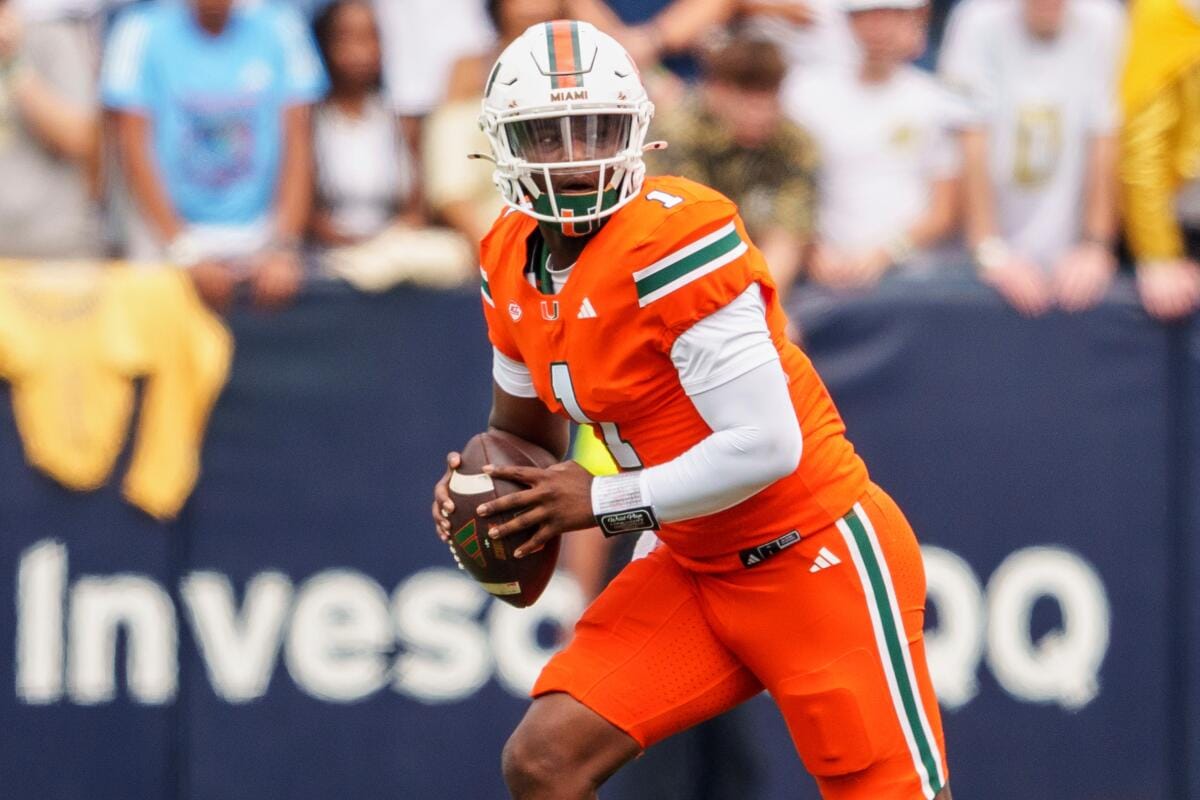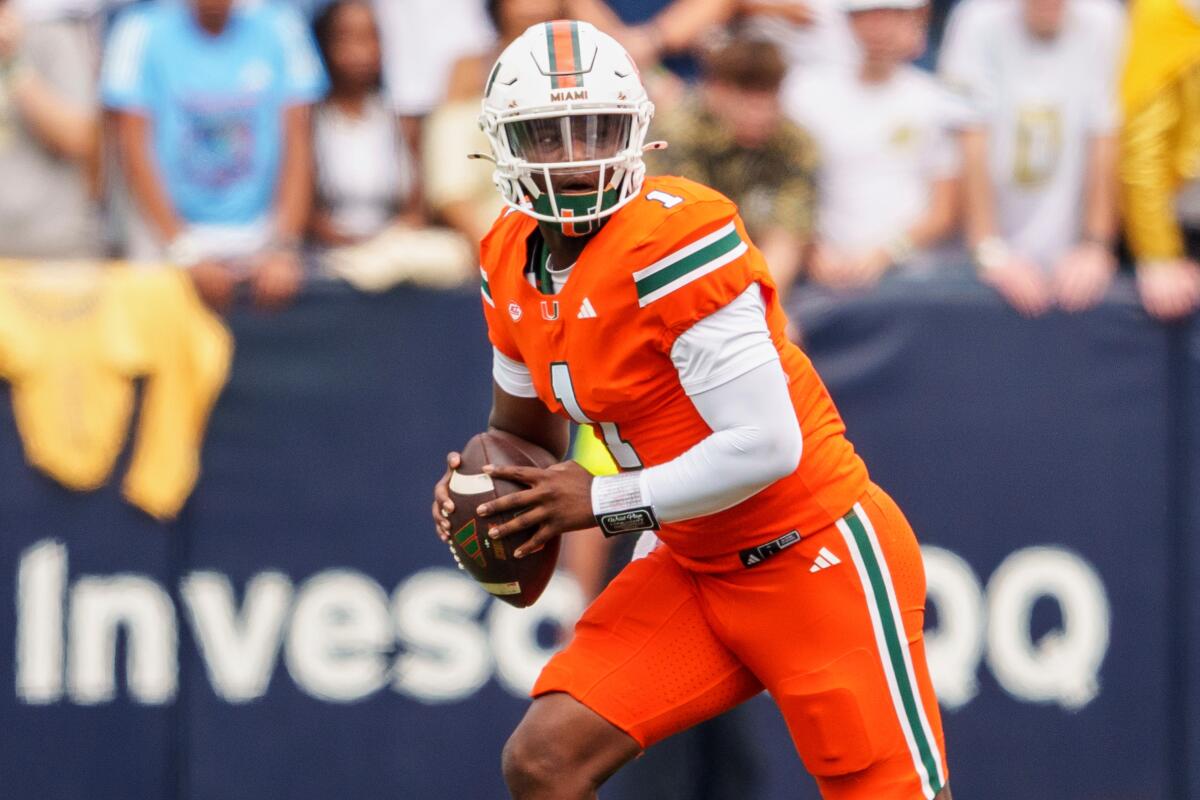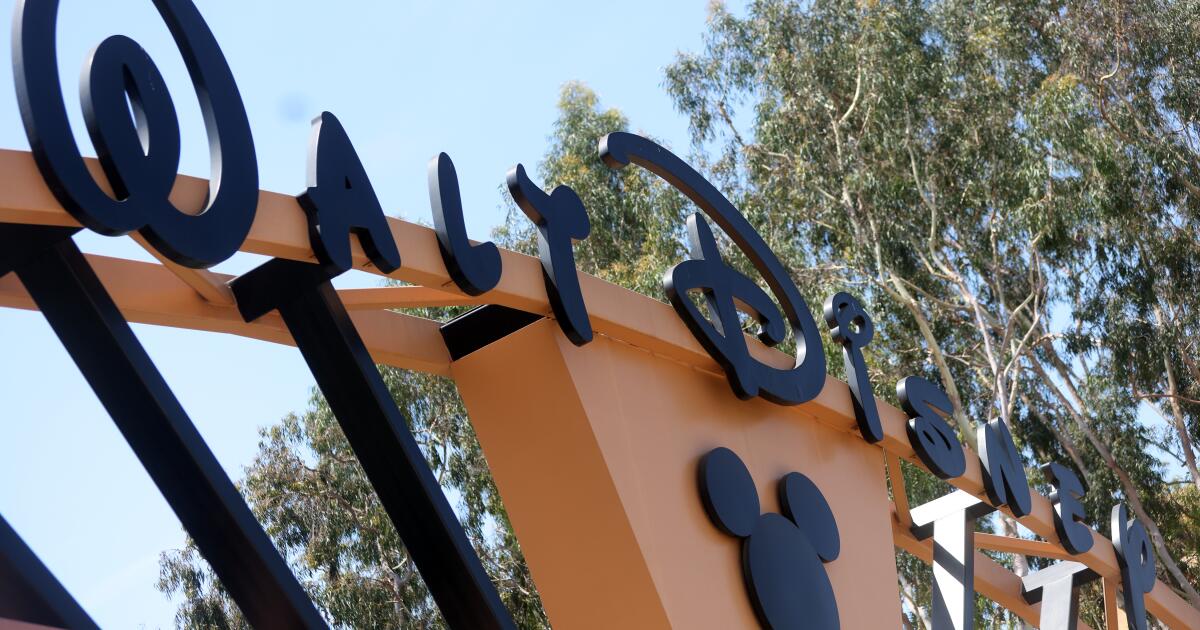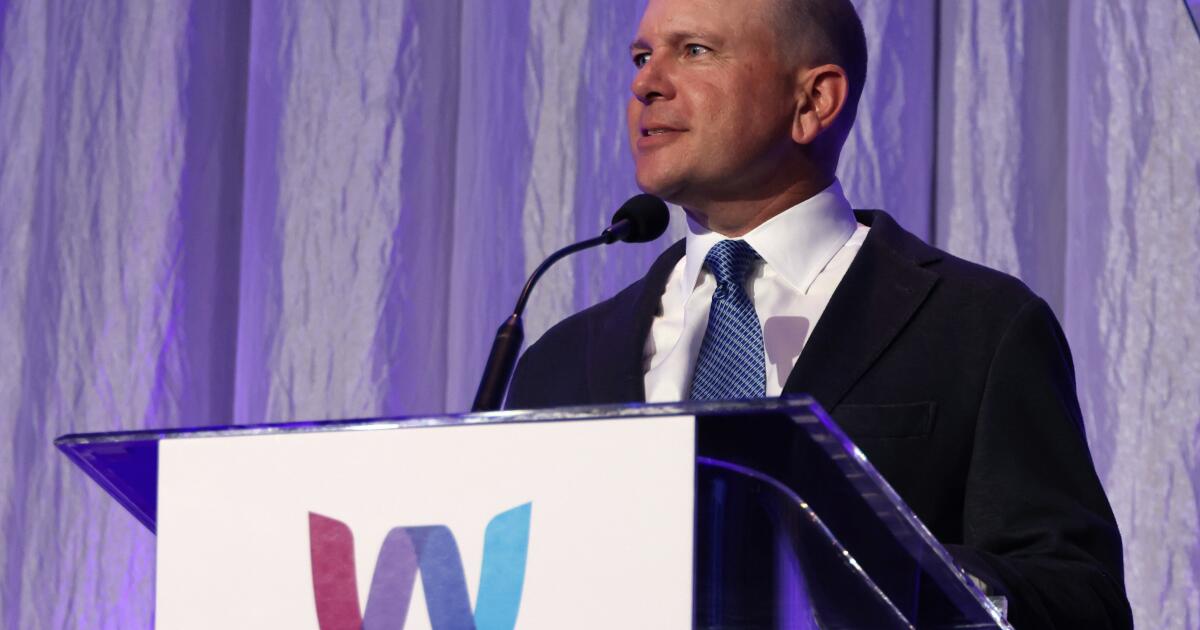ESPN, Disney channels blacked out on YouTube TV in contract dispute
More than 10 million YouTube TV customers lost access to ESPN, ABC and other Walt Disney Co. channels after contract talks broke down Thursday night in one of the largest television blackouts in recent years.
The Disney blackout was set to begin by 9 p.m. Thursday, interrupting “SportsCenter with Scott Van Pelt” on ESPN and “9-1-1: Nashville” and “Grey’s Anatomy” on ABC.
The two TV giants have been wrangling for weeks over carriage fees for Disney’s channels, including FX, Disney Jr. and National Geographic. YouTube TV — now one of the largest pay-TV services in the U.S. — has balked at Disney’s price demands, fueling the dispute that spilled beyond Thursday’s deadline for a new deal.
Without an agreement, Google-owned YouTube TV no longer had legal rights to distribute Disney’s channels.
“We know this is a frustrating and disappointing outcome for our subscribers,” a YouTube spokesperson said in a statement. “We continue to urge Disney to work with us constructively to reach a fair agreement that restores their networks to YouTube TV.”
Should the outage stretch for “an extended period,” YouTube said it would offer subscribers a $20 credit.
The blackout highlights heightened tensions in the television industry.
Programming companies, including Disney, have sought higher fees for their channels to help offset the increased cost of sports programming, including NFL and NBA contracts.
But pay-TV providers such as YouTube have pushed back, attempting to draw a line as customers grow weary of ever-increasing monthly bills.
They don’t want to lose subscribers to a rival service or have them drop their subscriptions. More than 40 million pay-TV customer homes have cut the cord over the last decade, according to industry data.
Disney becomes the latest TV programmer to allege that Google has been throwing its weight around in contract negotiations.
People close to the Burbank entertainment giant accuse YouTube TV of refusing to pay market rates for Disney’s popular channels or accept terms accepted by other pay-TV distributors. Disney has clinched deals with six other pay-TV companies this year, including the nation’s largest channel distributors, Charter Spectrum and Comcast.
“Unfortunately, Google’s YouTube TV has chosen to deny their subscribers the content they value most by refusing to pay fair rates for our channels, including ESPN and ABC,” Disney said in a statement. “Without a new agreement in place, their subscribers will not have access to our programming, which includes the best lineup in live sports – anchored by the NFL, NBA, and college football, with 13 of the top 25 college teams playing this weekend. With a $3 trillion market cap, Google is using its market dominance to eliminate competition and undercut the industry-standard terms we’ve successfully negotiated with every other distributor.”
Since August, Rupert Murdoch’s Fox Corp., Comcast’s NBCUniversal and Spanish-language broadcaster TelevisaUnivision have all complained that YouTube TV was trying to use its clout to squeeze them for concessions now that YouTube TV has become so popular with consumers.
Ultimately, Fox and NBCUniversal negotiated new distribution contracts with Google without having their channels going dark.
Univision wasn’t as fortunate; its channels have been off YouTube TV for nearly a month.
YouTube TV, for its part, has alleged that Disney was the one making unreasonable demands. The San Bruno, Calif.-based platform cited recent agreements it reached with NBCUniversal and Fox..
“Last week Disney used the threat of a blackout on YouTube TV as a negotiating tactic to force deal terms that would raise prices on our customers,” YouTube TV said in a statement. “They’re now following through on that threat. … This decision directly harms our subscribers while benefiting their own live TV products, including Hulu + Live TV and Fubo.”
Both Disney’s Hulu service and Fubo compete with YouTube TV by offering packages of many of the same traditional channels.
YouTube has alleged that Disney is using the blackout to steer disaffected YouTube TV customers to Disney-owned streaming services after the Burbank company lost subscribers who canceled following the late-night comedian Jimmy Kimmel’s brief suspension last month.
The two companies’ fraught dealings extend beyond the negotiations.
Last spring, Disney’s former distribution chief, Justin Connolly, abruptly exited to take a similar position at YouTube TV. Connolly had spent two decades at Disney and ESPN and helped devise the company’s distribution strategy. Disney sued to block the move, but a judge allowed Connolly to take his new position — putting him on the opposite side of the negotiation table.
It’s unclear how long the impasse might last.
A separate distribution fee dispute between Disney and DirecTV last year resulted in a 13-day blackout of Disney channels for customers of the El Segundo-based television provider. In 2023, another ugly tussle led to Disney channels being dropped from Charter’s Spectrum service for 10 days.
News and sports fans might quickly notice the absence of their favorite channels.
They could miss college football on ESPN and ABC as well as a “Monday Night Football” game between the Arizona Cardinals and Dallas Cowboys.

ESPN is scheduled to televise a University of Miami-SMU football game on Saturday.
(Jason Allen / Associated Press)
Disney’s ABC stations, including KABC-TV in Los Angeles, and the network’s affiliate stations around the country also will be unavailable on YouTube TV.
That means viewers could miss local newscasts, “Jeopardy,” “Wheel of Fortune,” “Good Morning America” and “Jimmy Kimmel Live.”
YouTube TV launched in April 2017 for $35 a month. The package of channels now costs $82.99.


